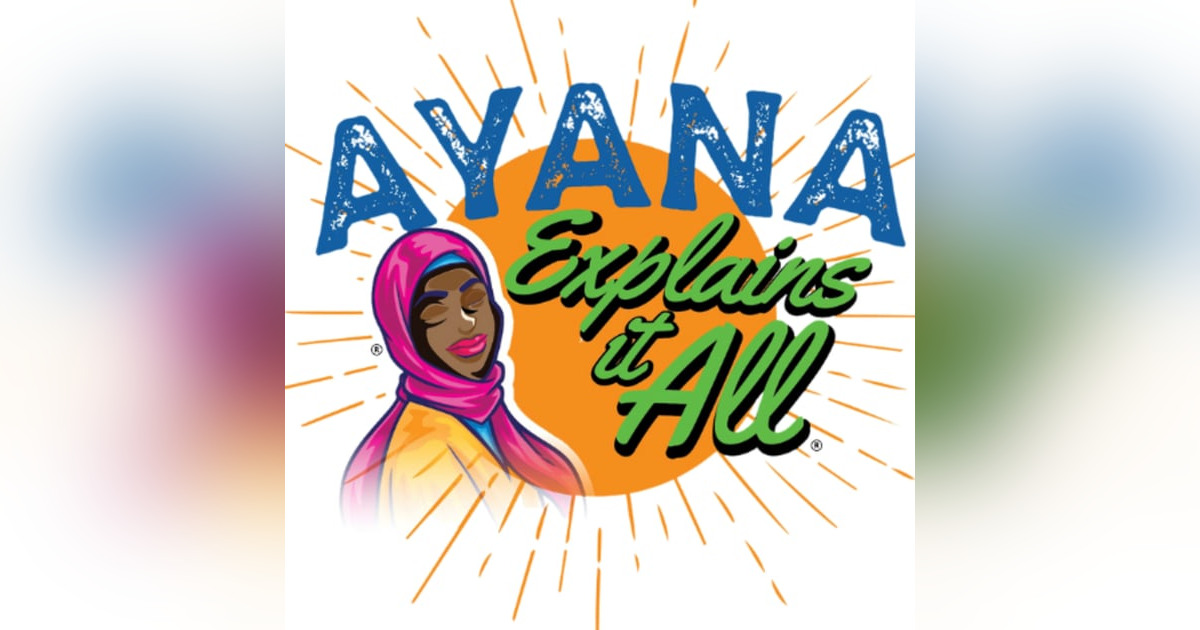
Sign up to get updates from us
By signing up, you agree to receive email from this podcast.

Ayana Explains It All bridges the gap between current events (sometimes in her own life) and human behavior. Understanding human behavior in the context of current events can be complex, and requires nuanced discussions. Peoples' actions and reactions are influenced by a wide range of factors including social, cultural, economic, political, and psychological factors. Through in-depth discussions, Ayana considers those factors in the context of currents events, analyzing individual differences in our human response to provide a nuanced understanding that bridges the gap between what's happening in the world and our individual human reactions.
Each episode, Ayana brings her unique perspective to the latest headlines, breaking down the underlying psychological and social factors at work. She explores everything from politics and economics to pop culture and technology, and offers insights that you won't find anywhere else.
So tune in, "ALLiens," and join Ayana as she explores the fascinating and ever-evolving landscape of human behavior in the modern world through facts, figures and enlightenment.
Start here by listening to one of the host's FAVORITE podcast episodes!
In the Season 5 premiere, Ayana discusses "ICE," the Minnesota protests, and systemic injustices faced by immigrant communities. She emphasizes the importance of resistance against oppressive systems, the moral and legal complexities surrounding it, and the historical context of civil rights movements. The conversation highlights the necessity of collective action and the need for justice that protects dignity and humanity.
In this episode, Ayana Fakhir reflects on the theme of courage throughout 2025, emphasizing that true courage involves facing truths and embracing imagination. She shares personal stories of how courage became more than just a word, evolving into a rhythm and a way of being. Ayana highlights that courage is not a solitary act but a relational and collective practice, urging listeners to find courage in truth and imagination as they move forward.
In this episode, Ayana explores the cyclical nature of American politics, highlighting how history often repeats itself through recurring themes of conflict, reform, backlash, and renewal. She emphasizes the importance of recognizing these patterns to transform them into spirals of progress, urging listeners to learn from the past to foster a more just and stable future.
The recent government shutdown may have ended, but the turmoil surrounding it has left many questions unanswered, particularly regarding affordable healthcare in the United States. This issue isn't new, nor is it likely to be resolved anytime soon. The shutdown highlights deep-rooted problems in how political parties prioritize—or fail to prioritize—the healthcare and other needs of the public.
🎥 Follow Our Vote Counts on TikTok for powerful voter education tips and real talk wi…
In this episode of 'Ayana Explains It All,' host Ayana Fakhir delves into the concept of caste in the United States, drawing from Isabel Wilkerson's book 'Caste: The Origins of Our Discontents.' Ayana discusses how caste, unl...
In this episode of 'Ayana Explains It All,' Ayana delves into the intersection of racism, politics, and housing in America. Ayana covers issues such as discriminatory housing practices in Arkansas and Missouri through the 'Return to the Land' initiative. She explains how this movement uses a legal loophole to create racially exclusive communities. Ayana also critiques the political landscape, highlighting how politicians manipulate crime narratives for electoral gains an…
Environmental Racism Under the Trump Administration
In this episode of 'Ayana Explains It All,' Ayana delves into the topic of environmental racism and its exacerbation under the Trump administration. The discussion covers the efforts of 'Our Vote Counts,' a nonpartisan movement to educate and empower voters, issues of systemic environmental injustices in marginalized communities, and deregulation actions that harm the environment. Specific cases such as Memphis, …
Courage Chose MeThere are moments in life that don’t announce themselves as turning points. They slip in quietly — like a draft under a door, or a whisper you almost mistake for your own breath. For me, courage arrived on a gray December…
Toxic Truths, Pollution Privilege, and Color-Coded Contamination Environmental racism is a complex issue, intricately interwoven into the tapestry of systemic inequalities that have shaped the United States. In this blog post, inspired by a recent …
Navigating the Bureaucratic Jungle: A Day in the Life of an Unelected Government Workhorse Welcome, dear readers, to a slightly exasperated, definitely enlightened dive into the life of your everyday government worker. Buckle up for a rollercoaster…